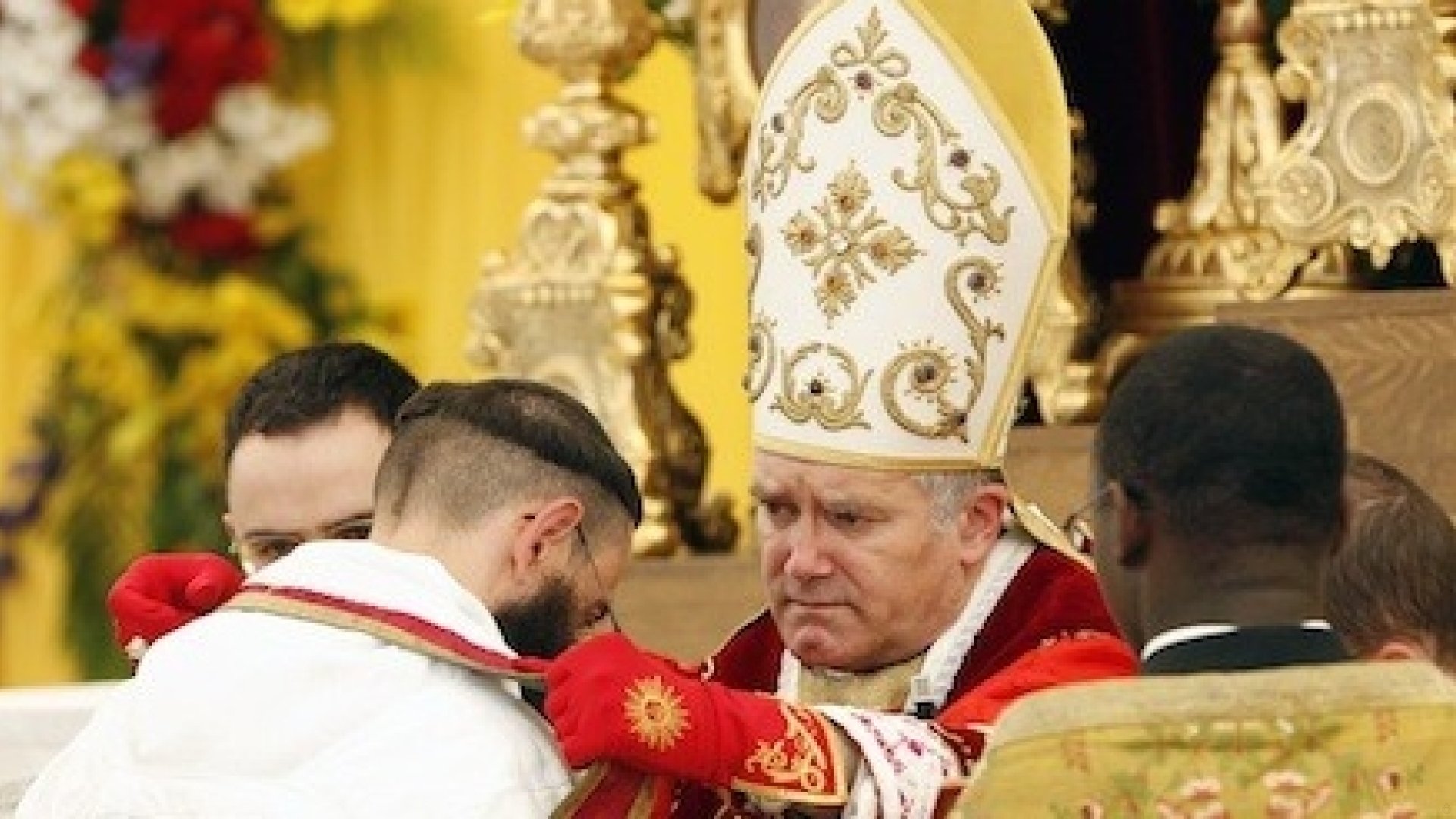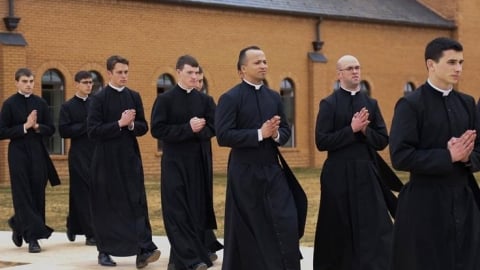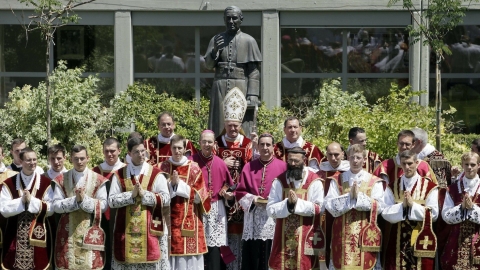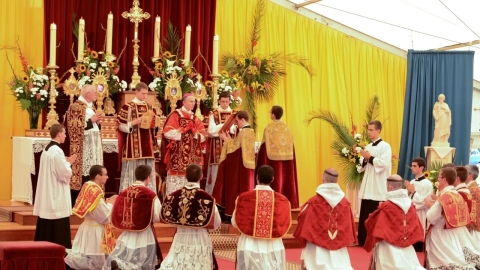Vocation - An Unnecessary Mystery

A sermon based upon a book by Fr. Richard Butler O.P.
Introduction
The word “vocation”, my dear brethren, is an evocative word; it is a word that often stirs up interior confusion, self-doubt, guilt and other such emotions particularly among the young. The reason for this is that the word itself has us unwittingly asking ourselves, “Do I have a vocation?”
Distinction
Most of us have asked ourselves this question at some stage in our lives: “Do I have a vocation?” But few really understand what a vocation is.
A vocation can be divided into two distinct categories: First, the religious vocation. This is the embracing of the evangelical counsels (poverty, chastity and obedience) usually within a religious community. It applies to both men and women. And second, the priestly vocation. This is the vocation arising from the sacrament of Holy Orders.
This sermon is about religious vocations but may be applied in equal measure to priestly vocations too.
What A Vocation Is Not
Most of us, as I have said, do not really understand what a vocation is. In 1960 Fr. Richard Butler O.P. wrote a book entitled: Religious Vocation, An Unnecessary Mystery. In this book he clearly exposes the modern false conceptions that surround the idea of a vocation and presents the perennial teaching of the Angelic Doctor, St. Thomas.
He says that there are two extreme and false notions of what a religious vocation is:
The first false notion is to see the idea of a vocation in a totally objective light:
- God calls all men to the evangelical counsels of poverty, chastity and obedience as a means to the end of man which is the perfection of charity. These are the best means of attaining the final goal and so all men should embrace them if they wish to be perfect. Therefore everyone should enter religion.
The opposite extreme is the most prevalent today, even among traditional Catholic circles. This is the error of seeing vocations in a totally subjective light:
- The vocation as a purely interior thing, something mysterious, full of unknowing.
The author mischievously quotes various flowery passages from romantic authors to illustrate his point: The Religious Life comes in various ways. In some cases it is distinct and overpowering. In other , it is gentle, like a whispering breeze, and must be listened to carefully in order to be discerned etc. And another one: My dear friend, in your heart of hearts, ask yourself if God is not calling you....
The problem with the first extreme of total objectivity is that while the religious life is the most perfect life, in the concrete manifestation of His will, God does not wish all men to embrace the religious state. Such a contingency would deprive heaven of souls (that would not be conceived in marriage) and would make a nonsense of the canonisation of married saints.
The problem with the opposite extreme is that the notion of a vocation becomes shrouded in mystery; it becomes indefinable; it becomes either an affair of Gnosticism (secret, infused knowledge) or, most often, an affair of sentimentalism when we try to discern God’s will by listening for voices, or by expecting thunderbolts and revelations, or by waiting for that warm fuzzy feeling we sometimes have when we pray.
What A Vocation Is
A religious vocation is nothing more than a firm will (impelled by grace) to embrace the evangelical counsels as a means to the end which is the perfection of charity.
A vocation is not something totally objective, applying to all men indiscriminately, and it is not something totally subjective, devoid of all clarity and objectivity. It is the juste milieu of the two extremes.
Objectively, a vocation is not a universal logical compulsion, but an invitation extended by Jesus Christ to all without distinction.
Subjectively, a vocation is not an emotional response to an idea, but an unruffled desire for perfect charity.
Do I Have a Vocation?
And so to return to the often uncomfortable question that screams at a young Catholic when he hears the word "vocation". In fact, there is no such thing as “having a vocation” like possessing a precious ring or hearing an interior voice perpetually nagging you.
Those who are serious should leave this question and ask themselves these questions instead:
1. Do I really want the perfection of charity?
2. Am I free of anything that might be an impediment to my embracing the religious life?
- Poor physical or mental health
- Slavery to a vice
- Dependents: husband, wife, children, elderly parents
- Financial liabilities
3. Do I have the magnanimity of soul to carry it through?
- Generosity in my love of God
- Desire for virtue
- Generosity with others
- Frankness
- Lack of pretence or deceit
- Moderation in honours
- Balanced appreciation of God’s creatures (sense of order)
- Prudence
A vocation is not involuntary and it is not mysterious. It is something that YOU decide after consideration - consideration of (a) what it means (b) whether you are capable of it and (c) whether you have the largesse of soul to carry it through.
And so if any of you have answered “yes” to these questions, my dear brethren, then all one can say is “Don’t dither and get thee to a convent!”
And if any of you are dithering, then I shall leave you with these words of St.Thomas:
The misgivings of those who hesitate as to whether or not they may be able to attain to perfection by entering religion is shown by many examples to be unreasonable….. To those who take this sweet yoke upon themselves He provides the refreshment of the divine fruition and the rest of their souls. To which may He who made this promise bring us, Jesus Christ, our Lord, who is over all things blessed forever. Amen. (St. Thomas’s final words of Contra Retrahentes.)
Bibliography: Religious Vocation: An Unnecessary Mystery, by Fr. Richard Butler O.P., ISBN: 9780895558237, Publisher: Saint Benedict Press, LLC, Imprint: TAN Books 2009





